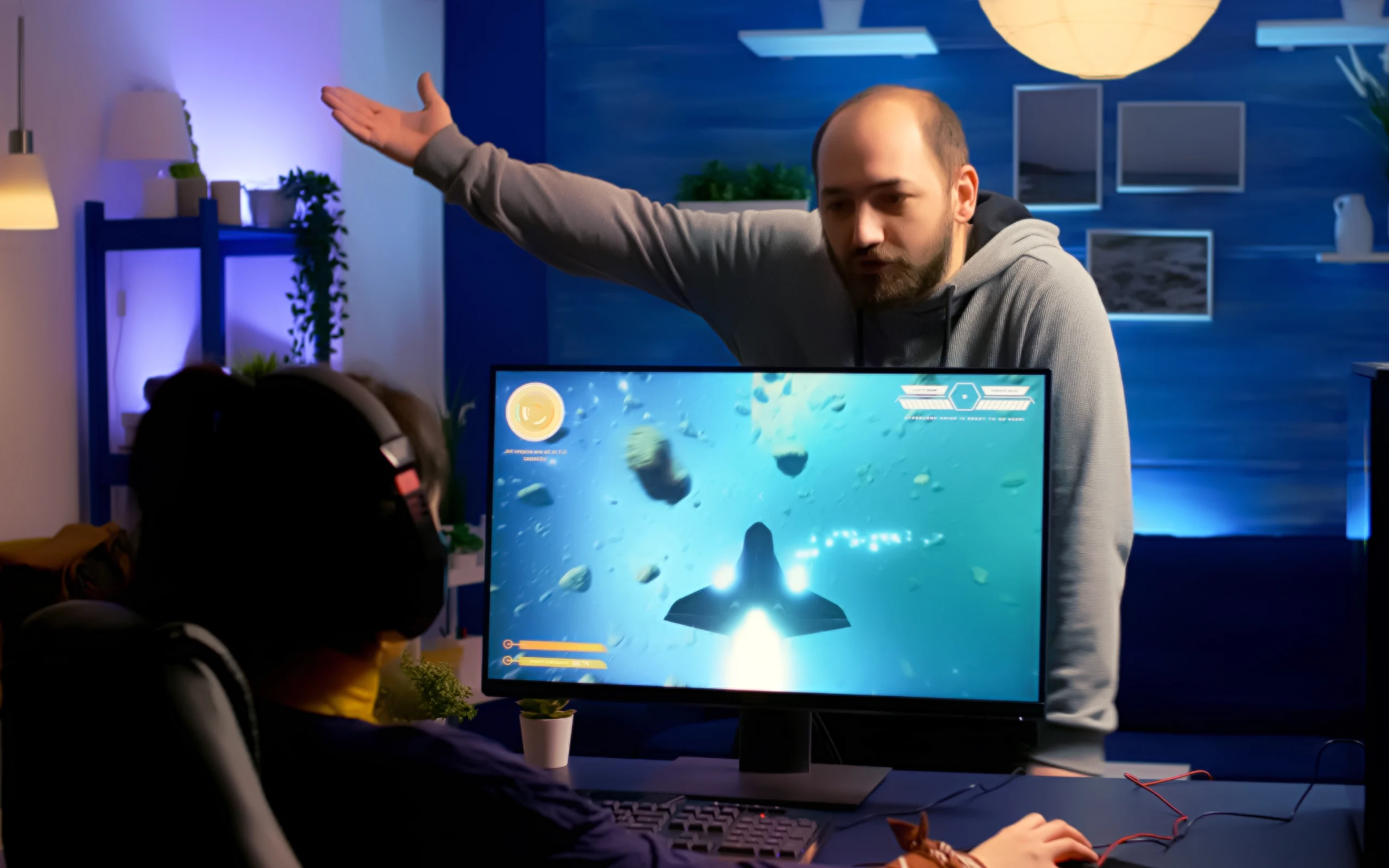Online Gaming Risks: Are Your Children Susceptible?

Cybercriminals have carried out more than 7 million attacks against young gamers, exploiting popular games such as Roblox, Minecraft, Fortnite, and Apex Legends. Children spend between 40 and 96 minutes playing online every day, which increases their online gaming risks for children. On the other hand, protecting children from online risks and virtual gaming environments can pose numerous risks in the real world.
Whether you’re concerned about hackers, financial fraud, mental health issues, or the constant threat of online predators and cybercriminals, understanding the risks your children face when they play online can help. This article will help you face the most serious risks of online gambling and educate you about cybersecurity tips to protect your kids.
Risks of Online Gaming for Children
1. Cyberbullying and Online Harassment
Online gaming security for kids is the most effective way to protect them. Cyberbullying is the harassment of another person through digital media, including text messages, social media, or online gaming platforms.
Stalkers create fake profiles to intimidate their victims and ruin their game. In multiplayer games, “pain” causes people to abandon their gaming gear. Almost 41% of players experience offline harassment, and 25.9% are victims of cyber harassment.
Child safety in online gaming is important, as the effects of cyberbullying can leave young children feeling helpless, isolated, and uncomfortable. In an extreme example, 15-year-old Mena Willis was forced to complete self-harm challenges while playing Roblox. He felt helpless against cybercriminals and ended up ending his life in the school toilet.
Warning signs: Children who act overly emotional after using their devices may be reacting to being bullied during games, and they might lash out or become withdrawn and quiet as a result. They may also try to hide their in-game conversations or texts. Victims of cyberbullying often become guarded around their devices and hide the screen when parents are nearby. Additionally, 63% of victims report that lack of sleep is the main psychological impact of cyberbullying.
Stress can disrupt sleep at night and make you tired during the day. What you can do as a parent: Get notified if your child is a victim of violence. Aura’s parental controls and family safety app can help you monitor in-game conversations (via text and voice messages) and alert you if your child is being bullied, harassed, or attacked.
Calm your child. Provide a safe space to discuss your concerns by listening without bias and offering unconditional support. Collect evidence of harassment. Gather screenshots of text messages, images, videos, and additional notes that you can send to the perpetrator’s school or the online platform itself. Blocks stalkers. Reviewing the privacy and login settings of all your child’s online accounts can help avoid bullies from contacting you again.
2. Inappropriate or Disturbing Content
More than half of young people aged 11 to 16 have viewed adult content online, such as games with violence, horror, drugs, or sexual content. If you are prepared, this content can be clear, disturbing, and impact young minds.
Street signs: Suddenly, they use swear words. Online gaming safety tips for parents to keep their kids protected. Video games or other online games may impact your normally well-behaved child if they begin to use more vulgar language.
You seem nervous or withdrawn.
Children who watch disturbing videos may have nightmares or appear worried about something after returning from a friend’s house. You have problems at school. Children who play violent games are more likely to engage in aggressive behavior. If your child lands up in the principal’s office because of a fight, the content of the games may play a role.
3. Account Takeover and Hacking
Unfortunately, children are not always familiar with online security and often use weak passwords for their accounts or share them with friends. Criminals can take over the account if they get your child’s login information.
Hackers who steal passwords can make fraud in-game purchases, post embarrassing photos, or impersonate your child by sending inappropriate or fraudulent messages to other accounts.
Warning signs: If you or someone you know is receiving strange messages from your child’s account, your account may have been hacked—unknown charges. Your child may not be responsible if you see unauthorized charges for your children’s games on your bill.
Attempt to change account details. Hackers may attempt to reset your child’s password or phone number. If you are notified of these changes, it could be a sign of a takeover attempt.
Benefits of Online Gaming
Concentration
Playing online requires patience, speed, and, above all, concentration. It has been proven that gaming significantly increases players’ ability to concentrate. Whether you’re looking down the barrel of a sniper scope or playing virtual golf, your ability to concentrate will improve!
Analytical Skills
Numerous games necessitate players to solve puzzles or problems in order to advance. These puzzles assess players’ analytical and problem-solving abilities, and some studies indicate that they can enhance players’ intelligence. These are vital life skills to acquire and have gained significant popularity in the mobile gaming market.
Relax
After a tiring day in a challenging world, video games provide an escape into a different reality, allowing players to unwind and immerse themselves in a new environment. Relaxation has also been shown to reduce stress levels in gamers. And because mobile games are so portable, you can play and relax anywhere.
Tips for Parents to Ensure Kids Play Game Safely
- Choose family games. Contact well-known publishers so you can check reviews and ratings to make sure they don’t hide inappropriate content or malware.
- Sign a gaming contract with your child. Sit with your children to discuss their gaming habits and agree on approved content, time limits, rules, and consequences.
- Offer rewards to encourage sustainable living. For example, every hour spent outside can unlock an additional 15 minutes of fun on the weekend. Store gaming consoles and games outdoors.
- Monitor your children’s playtime and the content they consume by insisting that consoles remain in common areas.
- Restrict the sharing of personal information. Teach children not to share their real names, phone numbers, or other details with strangers online to promote good digital safety practices.
- Use strong, unique passwords for all your online accounts. Someone who hacks into your child’s gaming account could steal your financial and personal information.
Conclusion
As online gaming continues to capture children’s attention worldwide, parents must recognize and manage the potential risks. From cyberbullying to excessive screen time, the digital realm presents challenges that demand proactive engagement.
Balancing gaming’s benefits with awareness of its pitfalls is key. We can mitigate these risks through open communication, setting boundaries, and leveraging parental controls to foster a safe gaming environment.
Empowering children to navigate the virtual world responsibly ensures they derive enjoyment while developing essential life skills. Vigilance and dialogue remain our best allies in protecting the well-being of video game enthusiasts.
Act Now!
Protect your kids from the dangers of online games! Stay informed and take active measures to ensure a safe gaming environment. Check out our comprehensive gaming safety guide, which is full of practical advice and information.
Strengthen yourself as a parent and protect your child while playing. Click here to power your digital world! #SafetyGames #ParentWill


 4.4/5.0
4.4/5.0 3.3/5.0
3.3/5.0 2.5/5.0
2.5/5.0